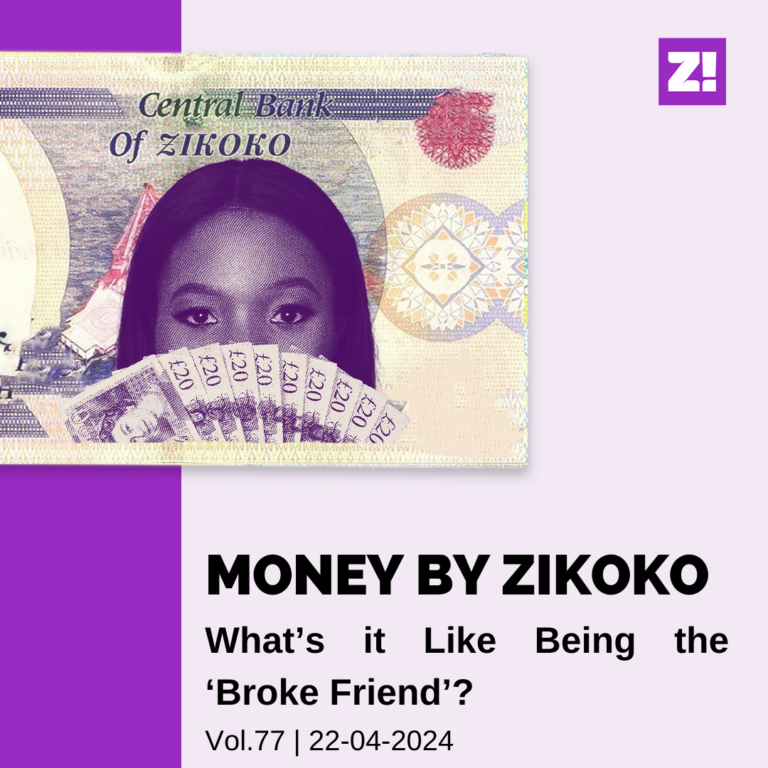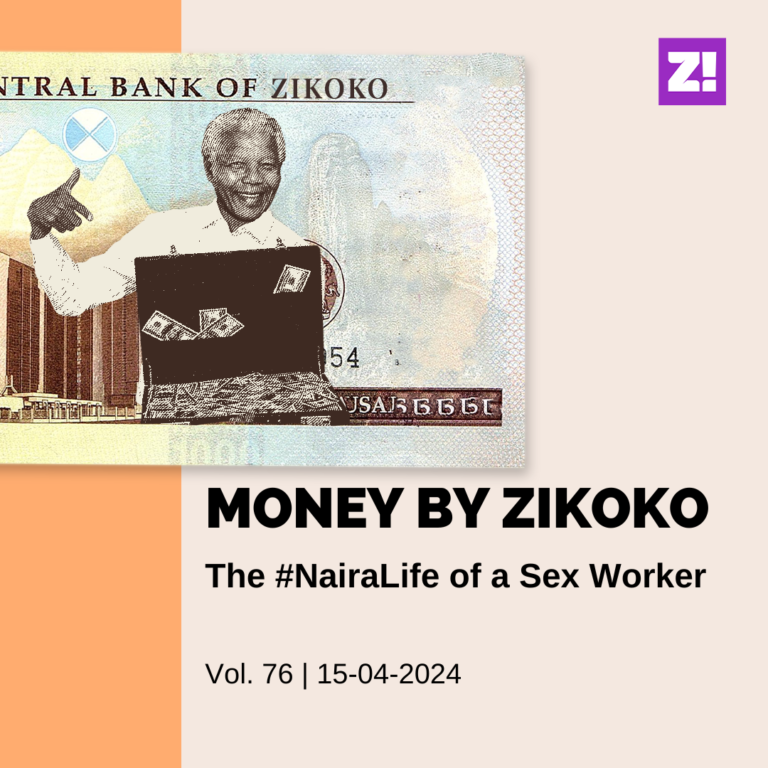Every week, Zikoko will share the hustle stories of Nigerians making it big in and out of the country. With each story, we’ll ask one crucial question in several ways: “How you do am?”
How would you describe your career in the non-profit sector so far?
It’s been rewarding. I’ve had a lot of help, especially when I was getting into the field.
What do you mean?
I’d have to take it back to secondary school — it was my introduction to public and social work.
I attended an all-girls secondary school. In 2005, I was in JSS 2 and wrote an essay that my English teacher liked, so she recommended I represent the school in a quiz competition. This opened the door for me to be my school’s representative at the Lagos State Children’s Parliament.
It was identical to the State House of Assembly; they got young people — between the ages of 10 and 19 — across Lagos State secondary schools together to discuss issues affecting children in Lagos State. Our resolutions were then presented to the actual House of Assembly. The Lagos State government set this up to prepare young people for leadership roles.
Sounds fun
It was. I was 12 years old at the time, and I had a great time. Because I was already representing my school at the parliament, I was also selected to go for a two-week programme called Peer Educator Training, organised by a non-profit organisation — Action Health Incorporated.
The NGO formed a health and life planning club in my school, and I was made the president. They wanted me to teach other students what I’d been taught.
I also had to follow the NGO’s field officers to outreaches during the holidays.
That was my first volunteer experience. It was unpaid.
They caught you young, ehn?
In the years that followed, I was a frequent visitor at Action Health Incorporated’s office. When I was in SS 3, I found out that they had a youth skill development programme for young people who had graduated from secondary school and wanted to take a gap year. They allowed you to intern with them for the year. I applied, took the written test, attended the interview and was accepted for the paid internship.
This was in 2009, and I got into the university the following year to study the English Language.
Did you continue volunteering with the NGO?
Absolutely. During semester and session breaks, I was always back to work at Action Health Incorporated. I can directly link my organisational and administrative skills to these experiences.
Tell me more
The NGO had a Youth Centre, providing young people with age-appropriate information, counselling and opportunities to develop skills that promote positive health practices. Usually, young people who came to the centre were attended to by other trained young people who were at the centre — the approach is called peer-to-peer education. So you’d always find me there helping out and building these skills.
When I graduated from university in 2015, I was mobilised to Abia State, but I redeployed to Ibadan. However, the NGO didn’t have a presence in Ibadan. So I had to find another one to volunteer with.
How did you find another one?
A ton of research. I built a list of NGOs in Ibadan and their addresses. Then I started looking at their websites to see which ones were doing things around education, women and youth empowerment. After trimming down the list, I started going to the NGOs one by one to introduce myself and offer to volunteer with them during my service year. At the end of the process, which took one week, I got a couple of offers. One of them even came with accommodation and a monthly allowance.
However, I declined the offer and went with the one from the Association for Reproductive and Family Health, one of the most popular NGOs in Nigeria. The next step was asking NYSC to post me there for my Place of Primary Assignment.
After my service year ended, I left the NGO because Ibadan was the administrative headquarters for the project I was working on. The field offices — and the things I wanted to do like outreaches, community mobilization and engagement — were in Lagos, Akwa-Ibom and River States.
I returned to Lagos and went back to Action Health Incorporated. Volunteering there for years had gotten me through the door, so it was easy to get a full-time job with them when the time was right.
I was there from 2016 to 2020 and served in different capacities. Between 2021 and 2022, I worked at two other NGOs. During these years, I made sure to work in the four biggest roles within the nonprofit system — Programmes, HR and Admin, Monitoring, Learning and Evaluation (MEL) and communications.
How did you manage to work in all of these units?
I was working in small-scale and local NGOs. More often than not, these organisations use their limited donor funding to support their programmes. This means they can’t afford to overhire people and often face manpower shortages. Because of this, job roles are flexible and members of staff have to wear many hats.
I took advantage of that. I could be writing a big funding application one day and developing a social media calendar the following day.
What came after?
In 2022, I felt like I’d gathered enough experience to work with international NGOs. I wanted a director-level role, so I started applying for openings that came my way, but two things were against me.
What?
My age and years of experience. I was 29 and had about seven years of post-uni experience. However, director-level roles require 15 years of experience.
Of course, nobody contacted me or invited me to interview.
Oof
I’ve been in the NGO sector since secondary school. I figured my pre-uni experience had to count too, so I returned to my CV and removed everything connected to my age — just for the chance to get one leg in. Then, I continued applying.
I’m guessing United Way was one of the NGOs you applied to
Yes. But they used a recruiting company, so I didn’t know what organisation it was. What mattered to me was the job advert. It said an NGO looking for an Executive Director. I thought it was perfect for me.
Thinking about it now, I also got lucky because I saw the ad a day after applications closed. The recruiter must have loved my application and profile.
During the interview, they mentioned the name of the organisation, and I was like “Ah, I have to get this job.”
But I had to wait for them to reach out again and set up an interview with the board. The call eventually came, and I went in for the second interview.
Do you remember the questions they asked you?
The bulk of the questions were around the four major units in non-profit — Programmes, HR and Admin, Monitoring, Learning and Evaluation (MEL) and communications.— which was a good thing because I had substantial experience in all four. So I was very deliberate in establishing that I knew what was required for each of these units to function. They also asked questions about fundraising and donor management, which I also had experience with. I was right for the role, and they knew it.
Energy!
United Way has over 1800 chapters across 37 countries. I got the job to lead the team in Nigeria and started work in April 2022. I’m responsible for planning, organising and directing the organisation’s operations and programmes in the country.
Nice. What’s been the hardest part?
Managing people. I like structure, but when you are on the field, you might have to work with community or government structures that are not as refined as yours. If this is mismanaged, it will affect your goals and timelines. But I’ve also learnt that people are motivated to do the right thing when the person in charge does the same. If you don’t care about the work, no one will.
What’s the best way to start a career in this field?
Starting as early as possible and applying to volunteer with an organisation or more, depending on your bandwidth. It’s also important not to think too much about money when starting. I was a volunteer for years before I got my first proper job, and not all of them were paid. But the experiences prepared me for a career in this sector and ensured that I was always in the right place at the right time. Also, I’ve always gone where the work is, out to the field. This helps, especially during job interviews, because I know the processes to solving most campaign problems since I’ve lived them.
In addition, it’s worth noting that working in a non-profit has very little to do with your background or what you studied in school. While a degree in sociology, social work or public health gives you an edge, it’s your volunteering experience that makes the difference. And the thing is, when you volunteer or intern at an NGO, there’s a high chance you’ll be retained as a full staff.
What do you think is next for your career?
I got a master’s degree in sociology in 2020. The next step might be getting a PhD. On the work front, I’ve always wanted to work at the UN. And I believe my current role is a step in the right direction to making that happen.
Interview by: Oghenetega Ogodo
Hustleprint stories drop every two weeks on Tuesdays at 12 p.m. WAT, and Hustleprint guides will drop in the interim weeks.
So you can follow each drop, Hustleprint will be published in our money newsletter.




